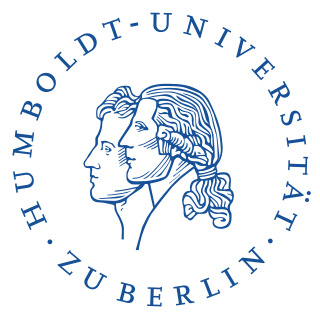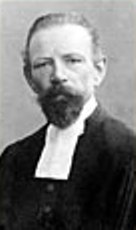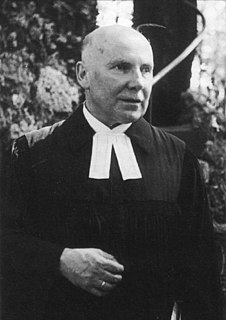Pope Felix III was the bishop of Rome from 13 March 483 to his death. His repudiation of the Henotikon is considered the beginning of the Acacian schism. He is commemorated on March 1.

The Rhenish Friedrich Wilhelm University of Bonn is a public research university located in Bonn, North Rhine-Westphalia, Germany. It was founded in its present form as the Rhein-Universität on 18 October 1818 by Frederick William III, as the linear successor of the Kurkölnische Akademie Bonn which was founded in 1777. The University of Bonn offers many undergraduate and graduate programs in a range of subjects and has 544 professors. Its library holds more than five million volumes.

Humboldt University of Berlin is a public research university in the central borough of Mitte in Berlin, Germany. It was established by Frederick William III on the initiative of Wilhelm von Humboldt, Johann Gottlieb Fichte and Friedrich Ernst Daniel Schleiermacher as the University of Berlin in 1809, and opened in 1810, making it the oldest of Berlin's four universities. From 1810 until its closure in 1945, it was named Friedrich Wilhelm University. During the Cold War the university found itself in East Berlin and was de facto split in two when the Free University of Berlin opened in West Berlin. The university received its current name in honour of Alexander and Wilhelm von Humboldt in 1949.

Leonard Nelson, sometimes spelt Leonhard, was a German mathematician, critical philosopher, and socialist. He was part of the neo-Friesian school of neo-Kantianism and a friend of the mathematician David Hilbert. He devised the Grelling–Nelson paradox in 1908 and the related idea of autological words with Kurt Grelling.

Felix von Hartmann was a German prelate, who was Archbishop of Cologne from 1912 to 1919.

Wilhelm Graf was a member of the White Rose resistance group in Nazi Germany. Followers of the Catholic Church in Germany regard Graf as a martyr. His beatification cause for sainthood is in progress.
The von Hurter family belonged to the Swiss nobility; in the eighteenth and nineteenth centuries three of them were known for their conversions to Roman Catholicism, their ecclesiastical careers in Austria and their theological writings.
Adelmann was the bishop of Brescia, in Northern Italy, during the eleventh century. Adelmann seems to have become bishop there in 1050, and to have taken an active share in the church-reform movement of the period, especially against the clerical abuses of simony and concubinage.

Arbeoof Freising was an early medieval author and Bishop of Freising from 764.

Erich Klausener was a German Catholic politician and Catholic martyr in the "Night of the Long Knives", a purge that took place in Nazi Germany from 30 June to 2 July 1934, when the Nazi regime carried out a series of political murders.
Emanuel Hirsch was a German Protestant theologian and also a member of the Nazi Party and the Nazi supporting body. He escaped denazification at the end of the war by quitting his professorship, allegedly for health reasons, losing the pension from his University.

Heinrich Hansen was a German Lutheran theologian and the father of the Lutheran High Church movement in Germany.

Friedrich "Fritz" von Bodelschwingh, also known as Friedrich von Bodelschwingh the Younger, was a German pastor, theologian and public health advocate. His father was Friedrich von Bodelschwingh the Elder, founder of the v. Bodelschwinghsche Anstalten Bethel charitable foundations.
This article gives an overview of esoteric movements in Germany and Austria between 1880 and 1945, presenting theosophy, anthroposophy and ariosophy, among others, against the influences of earlier European esotericism.

Jakob Wilhelm Hauer was a German Indologist and religious studies writer. He was the founder of the German Faith Movement.

Gottfried Thomasius was a German Lutheran theologian. He was born in Egenhausen and he died in Erlangen.
Heinrich Ludwig Julius Heppe was a German Calvinist theologian and church historian.
Friedrich Gogarten was a Lutheran theologian, co-founder of dialectical theology in Germany in the early 20th century.
Events in the year 1919 in Germany.











